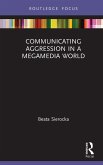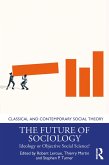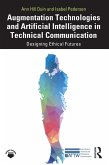Dieser Download kann aus rechtlichen Gründen nur mit Rechnungsadresse in A, B, BG, CY, CZ, D, DK, EW, E, FIN, F, GR, HR, H, IRL, I, LT, L, LR, M, NL, PL, P, R, S, SLO, SK ausgeliefert werden.
"In an era in which dependence on information and communication technologies has reached new heights and the dangers they pose to our social fabric and personal well-being are so pronounced, Max Hänska makes an invaluable contribution to the much-needed conversation on the normative choices we face when we put them to use. Communication Against Domination is a thorough, broad, insightful and accessible read designed for both scholars and advanced students. It tackles head-on the moral dilemmas contemporary media technologies bring about and proposes a well-argued theoretical approach to engage with them." - Amit Schejter, Professor of Communication Studies at Ben-Gurion University of the Negev and Co-Director of the Institute for Information Policy at Penn State University
"Mitigating the harms linked to today's complex communication systems puts normative evaluation at the core of policy making in increasingly visible ways. Max Hänska provides us with an engaged philosophically-grounded account of how to differentiate between good and bad technology and societal outcomes. What principles should underpin efforts to achieve communication systems that are free from domination? How can procedural justice inform the design and governance of artificial intelligence-enabled systems? Hänska's Communication Against Domination addresses these questions in a very thought-provoking way. The book should be required reading for anyone engaged in deliberation about what ought to underpin our normative positions and choices." - Robin Mansell, Professor of New Media and the Internet, London School of Economics and Political Science
"Communication Against Domination offers a rich framework for analysing the normative underpinnings of communication in contemporary society. It proposes that freedom as non-domination can provide a suitable goal for communication, and for empirical and theoretical communication analysis. In his sharp and thorough reasoning Max Hänska lays out how traditional media, the Internet and Artificial Intelligence challenge and transform the normative foundations of communication. The book is fascinating in its profound understanding of social and communication theory and a must read, particularly for students pursuing empirical communication research." -Barbara Pfetsch, Professor of Communication Studies, Communication Theory and Media Effects, Freie Universität Berlin, and Managing Director, Weizenbaum Institute for the Networked Society - The German Internet Institute
"This volume provides a clear and sustained intervention into ongoing public and scholarly conversations about the normative implications of contemporary media environments. Departing from a historically and philosophically grounded analysis of different communication technologies, Max Hänska contributes an agenda of non-domination for further research and debate." - Klaus Bruhn Jensen, Professor, University of Copenhagen









